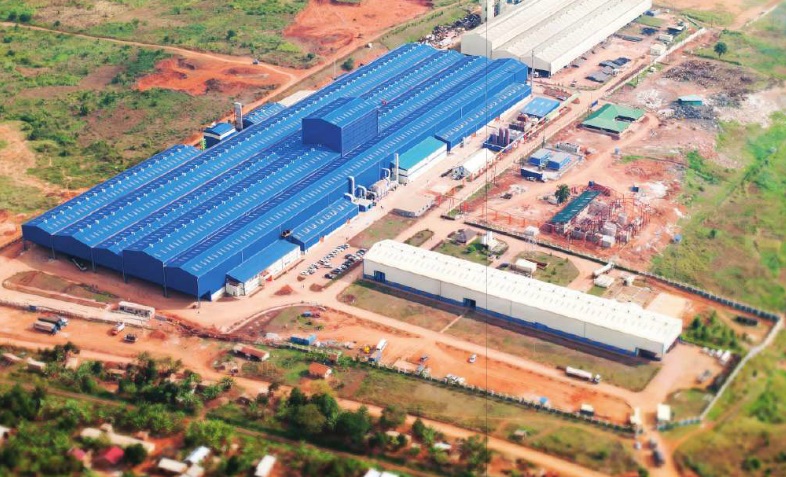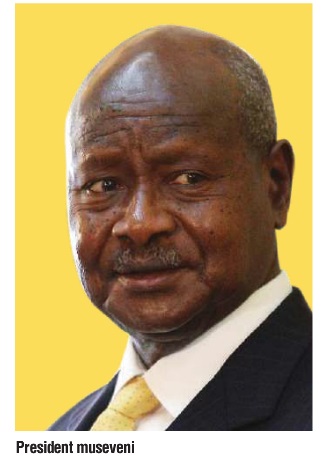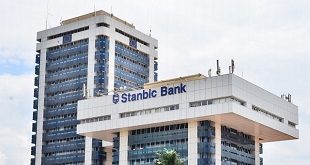Amongst these, he said, was the problem of government not paying arrears of private companies that supplied to the government. He said that he had already directed government to resolve this issue. Highly placed sources told The Independent that government had not paid up to Shs1 trillion to local service providers. This delayed payment had affected companies like construction giant, Spencon, which demands billions of shillings from government.
The Independent understands that it is only on July 11 that Uganda National Roads Authority received about Shs400 billion to pay some of the arrears. Secretary to the Treasury, Keith Muhakanizi, who is understood to be against the bail out, has come out to say government will pay the arrears.

Museveni also pointed out companies in the oil sector that borrowed money in order to buy drilling rigs using borrowed money that was attracting huge interest and yet they are not yet working because of delays caused by the government.
“These companies will get support from the Government to negotiate with the banks for reasonable treatment,” he said.Businesses like Three Ways shipping and Bemuga Forwarders could be considered here.
Other investors like Roofings Limited borrowed from the World Bank’s International Finance Corporation (IFC) and expanded their capacity but can only produce at 30 percent capacity because of low demand. Specifically, Sinohydro, which is working on Isimba and Karuma dams, has refused to take Roofings Ltd products over quality concerns but Japanese and South Koreans contractors working on bridges in Uganda say the steel produced by Roofings is of high quality.
The Chinese companies, The Independent has been told, cannot source steel locally because they produce a lot of steel back at home that they must find market for.
Museveni also warned commercial banks and money lenders not to grab people’s properties using unethical methods as long as there is evidence that those companies are owed money by the government.
He said companies that supplied to the embattled government of South Sudan and had not been paid on account of the crisis would also be helped.They reportedly demand over $ 100 million most of which was borrowed money from the banks that has been accumulating interest.
For Museveni, as always, there are political considerations. Most of the pleas for a bailout are from the business community that supported him immensely during the recently concluded elections.
The current deal, whose implementation is expected to kick off this August, started taking shape as early as last year when one by one top private business people started meeting President and requesting for support to save their businesses.
At the time, Museveni was facing a high-stakes election and possibly pledged to look into the matter after the election. In any case, the same companies are said to have to bankroll his campaign.
Many business people determined to catch the President’s eye contributed funds, sometimes in small amounts, and were also directly involved in campaigning for Museveni.
Names of contributors read like the Who-is-Who of Uganda’s business elite. SudhirRuparelia of Crane Bank, Joseph Yiga of Steel and Tube, Bitature of Simba Group and LalaniSikander of Roofings top the list of over 50 businesses and people that contributed towards Museveni’s campaigns.
Some of them have interests in the hotel, energy, real estate and finance sectors that are facing distress.Some of these, not all, are amongst those being considered for a bail out The Independent has learnt.
In a major revelation, the Crane Bank’s proprietor, SudhirRuparelia told The Independent recently that “half of Kampala is on sell” and there is no one to buy.
The poor performance of these companies also partly explains why the Uganda Revenue Authority registered a shortfall of Shs242.6 billion between January and March. The shortfall mainly arose from a fall in domestic taxes like Pay as You Earn (PAYE), Value Added Tax (VAT) and local excise duty.

Catching Museveni’s eye
Indeed, other knowledgeable sources claim that this financial distress was the reason some of these business people went out of their way and directly campaigned for Museveni. They did not have a lot of assurances that a new president would be sympathetic to them.
Under pressure from private banks, the business people were looking to lobby for support immediately after the election.
With the election out of the way, real lobbying for a bail out started around April. Meetings have been held between these business people, officials at the Finance Ministry, the Office of the Prime Minister, officials at Bank of Uganda, and President Museveni.
Other officials at the centre of the deal remain cagey about its details but The Independent has learnt that President Yoweri Museveni is keen to see it through.
By press time, officials were still working out the nitty-gritties of bailout package. Apart from cash handouts, the government through the Office of the Prime Minister (OPM) has worked out an extensive plan with the PSFU, which is intended to improve the business environment in Uganda.
Prime Minister Ruhakana Rugunda on June 13 wrote a brief detailing the same to President Museveni. Apparently, all government Ministries, Departments and Agencies (MDAs) are working to implement these following an inter-ministerial meeting Rugunda chaired on June.1 Four days later; the measures were communicated to the business community.
On the commercial banks’ high interest rates on borrowing, the government has directed Bank of Uganda to issue guidelines that would introduce the mandatory signing of `consumer protection’ at the time of contracting loans.
The Independent also understands that the decision to reduce domestic borrowing as announced by Finance Minister, Matia Kasaijja in his budget speech was part of the measures to reduce interest rates.
Earlier this year, government also borrowed some $ 200 million from PTA Bank of Kenya to stablise the shilling.
The other move government is considering is contained in the local content policy. Apparently, government is proposing the review of the PPDA law to require that 40 percent of all public procurement deals are always subcontracted to local suppliers.
As The Independent recently reported, Ugandan businesses are concerned that in the on-going construction of big infrastructure projects like Karuma and Isimba, the Chinese contractors are subcontracting fellow Chinese companies to supply cement, crashed and coarse stones, which can be supplied directly by Ugandans. The same has for long haunted local suppliers in the oil industry.
Rugunda also said the government had agreed to settle outstanding arrears by the end of August. When The Independent attempted to reach him for a comment, Rugunda, in a text message asked us to text back saying he could not talk. When we contacted his spokesperson, Julius Mucunguzi, he said that is a matter the Prime Minister would comment on himself. We texted the Prime Minister what the issue was and by press time, he had not responded.
Badagawa said that the figure being talked about regarding payment of outstanding arrears is just Shs100 billion. But The Independent has learnt from other sources that local suppliers demand government over a trillion shillings.
*****
editor@independent.co.ug
 The Independent Uganda: You get the Truth we Pay the Price
The Independent Uganda: You get the Truth we Pay the Price



Just another way of transferring public wealth to private pockets – in most cases, pockets that have contributed to the President’s campaign. All these private businesses operate in a free market, with rewards for taking sensible risk. When they make mega profits, they don’t donate a portion to the public, do they? Why then, should the public support them when they make losses? In most cases, these are bad investments, for which the entrepreneur (not the taxpayer) should pay the price! If a business has expanded so much that it has 70% idle capacity, that was bad planning by the owners. It’s laughable to suggest that a few firms going down will “collapse the economy”. If Uganda’s economy is such a flimsy house of cards, maybe it should be allowed to collapse. A bailout as proposed will create moral hazard, making it even more likely that future wealthy “businessmen” beneficiaries will take even more outrageous risks, and plunder their companies, in the knowledge that “Government” (i.e. the taxpayer) will come to their rescue anyway. A perfect example of private profit and socialised losses!
Well said
Govt wants to take one trillion out of the tax payers’ purse to bail out ailing companies. The same govt owes suppliers one trillion!?! It is most likely that the beneficiaries of the bail out are also the suppliers who haven’t been paid. So after bailing them out, does govt also intend to clear the arrears? Meanwhile, there are small businesses which are also sinking in “small debts” taken from micro-finance institutions, SACCOs and Village Loan Schemes, who is going to bail them out?
Proponents appear to be mainly the Who-is-Who in Uganda’s business
community and politicians, while opponents appear to be technocrats in
Ministry of Finance, policy makers, and regulators.
Mistakes by investors that are pushed by lack of strategic planning but by free wheeling opportunism should never be a burden on Ugandans. They invest without thought, no focus and majority of them have never had of business analysis in its raw form. They expand without planning and now that they are collapsing Ugandan should shoulder them!!!
Such intervention should be into the economy as a whole not to inefficient organizations that employ their cronies without regard to skill. We all borrow from the same institutions and have the same burdens. If a bank did not appraise her client well, should we prop it. The same bank will announce profits, shouldn’t it be left to leak their wounds like all of us.
For once the technocrats are spot on.
Yet to confirm but the same so called investors could be benefiting from other incentives that are denied us.
So where is our economy heading with this?. the worst in history than AMIN
If our government is serious, it should only think of
helping the affectecd companies by renegotiating the loans with commercial
banks or ask Uganda development Bank to buy out the
loans. Sincerely we are all sweating to meet our loan obligations and its quite
difficult for me to understand how they compiled that least of affected
companies. I have seen Ham also listed as a beneficiary and yet this is same
person who borrowed to build a 5 star residential home in Bunga, estimated to
be USD 5millions in addition to buying several flashy vehicles. Pls advise me
how the economy is going to benefit from that? Am not against ham but this is
just an example.
Secondly, there is nothing wrong with banks selling off
businesses because that’s what happens in the free world. This will not put our
economy at risk since other capitalized investors will be taking over and still
continue doing business in Uganda.
Some of these guys borrow money and start showing off, buy
their concubines new vehicles, fly their families abroad for holiday,s etc and
now they want to shift their problems to the ordinary tax payer. That’s what
makes me hate this government with passion. Is there any due diligence that was
done to confirm that borrowed money was used to stimulate the economy? AND its high time that the small individuals also
start subsidizing themselves by not paying URA Taxes since nobody thinks us.